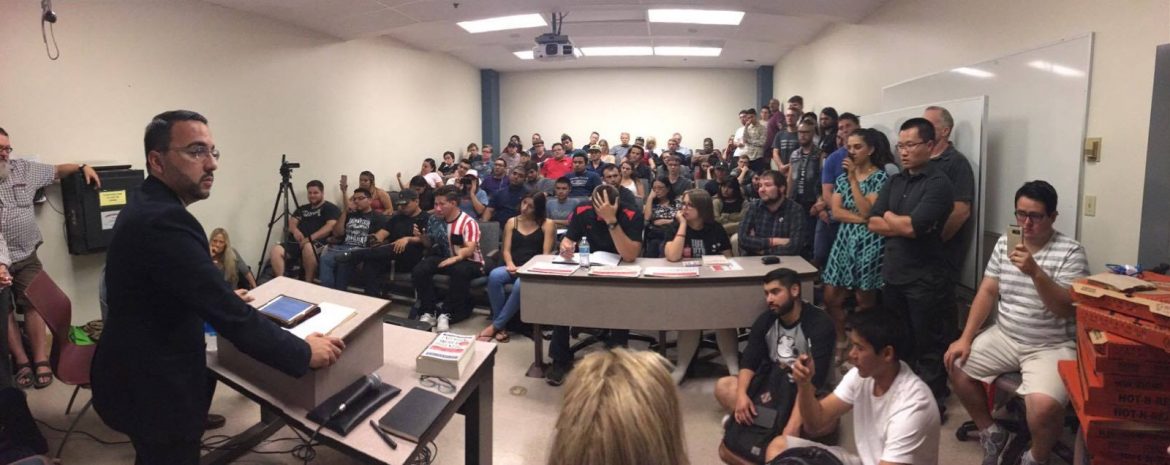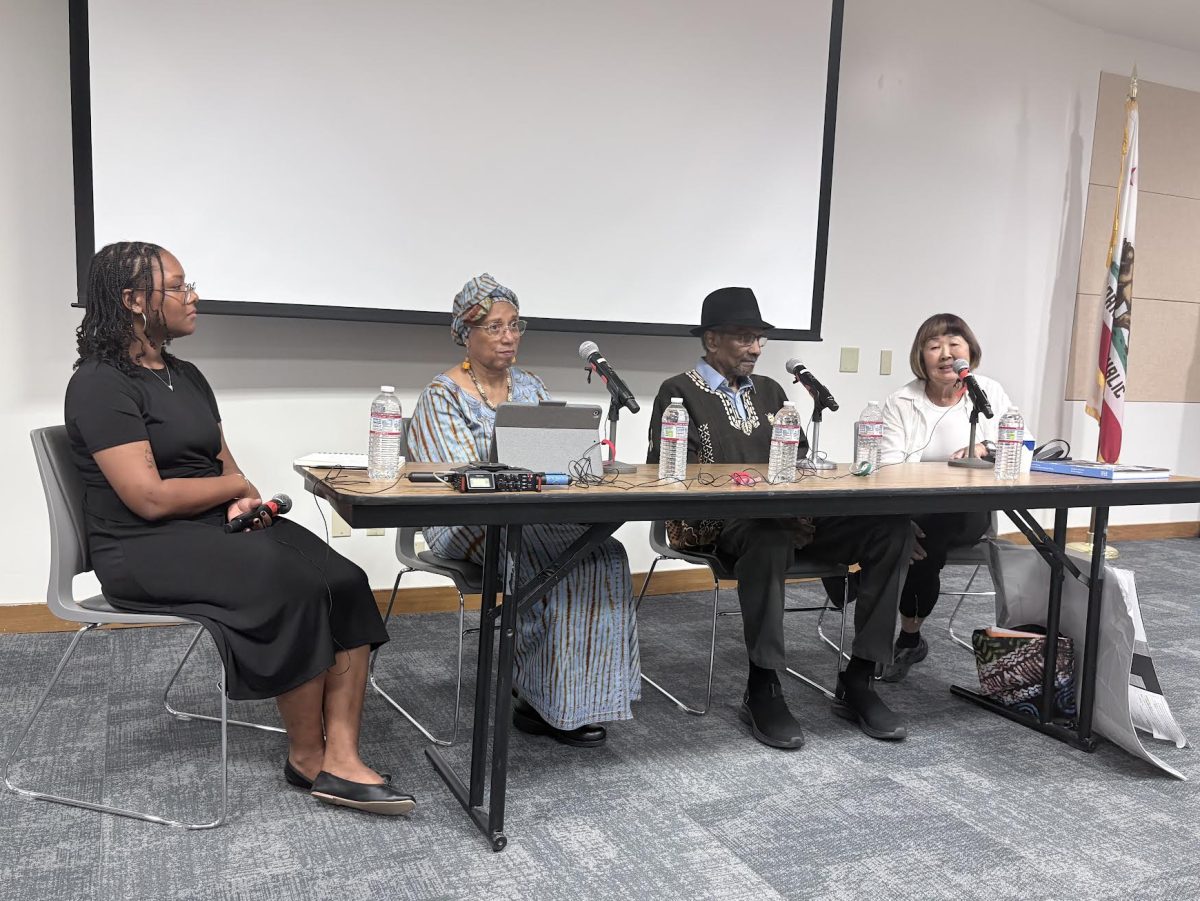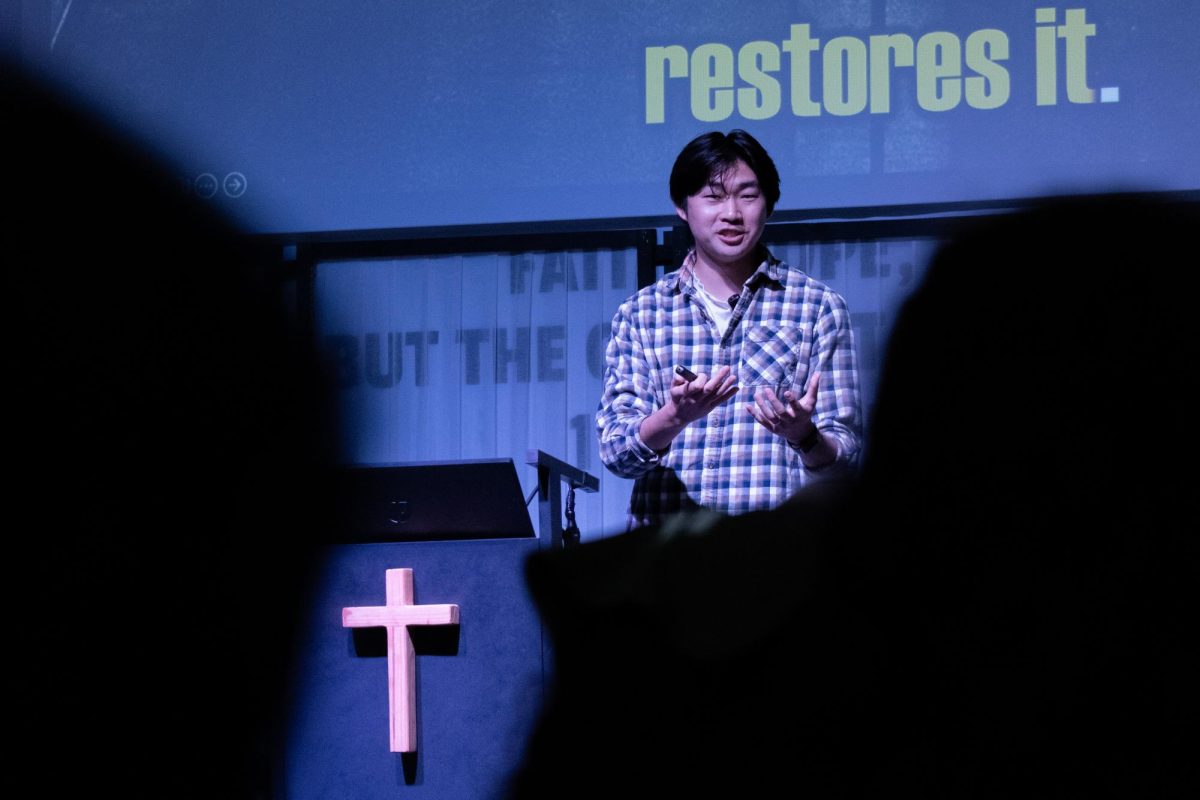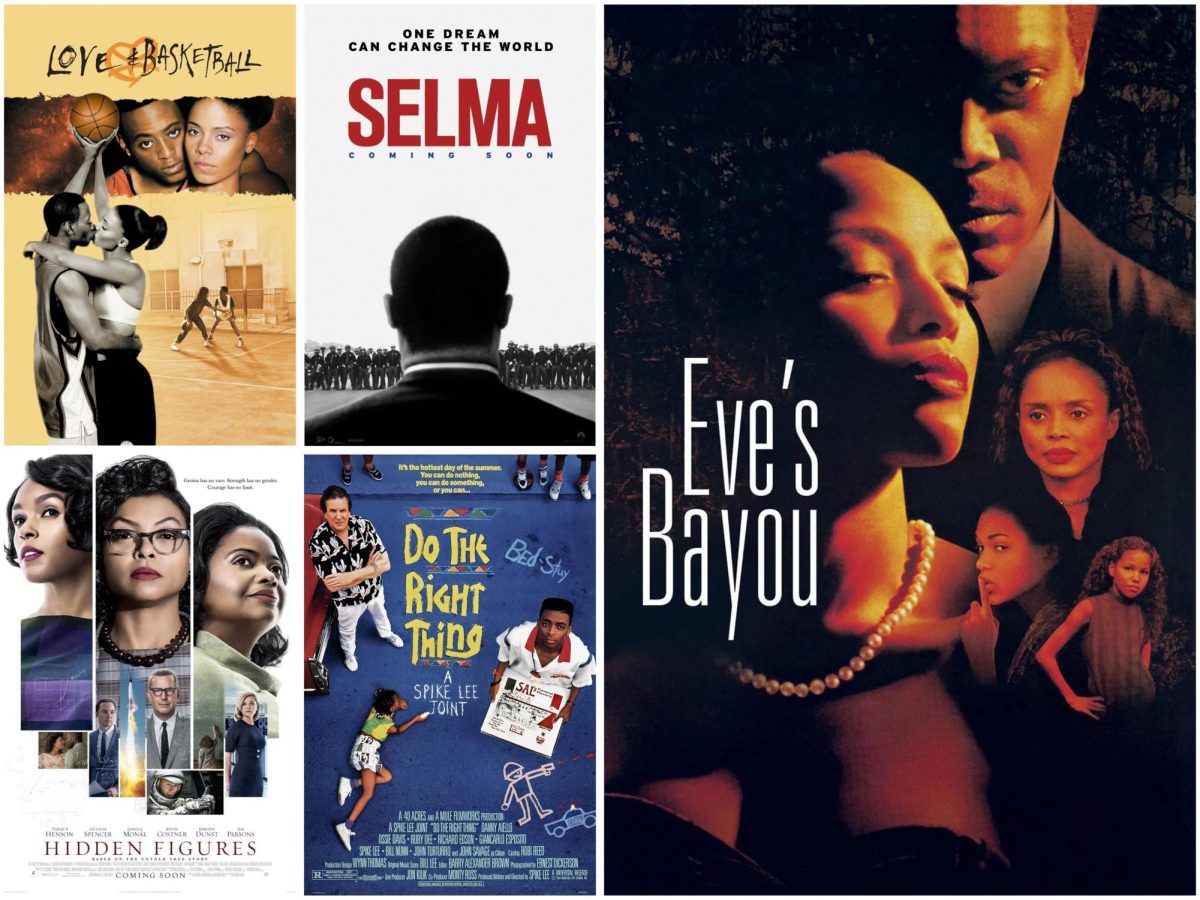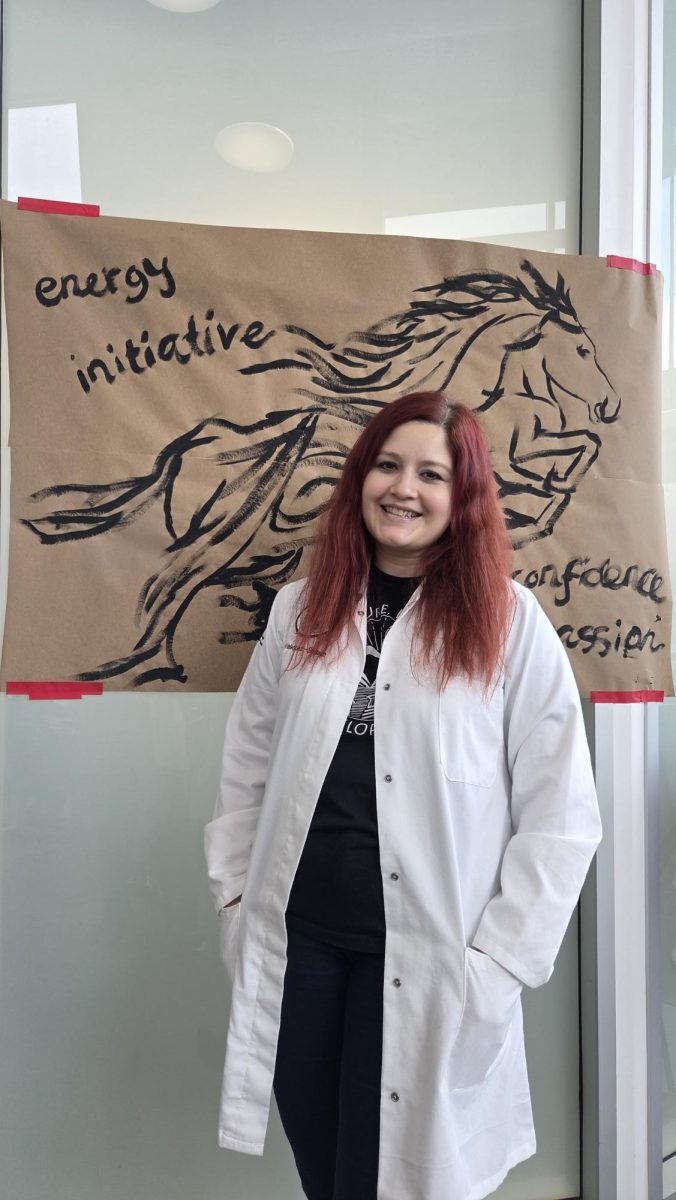On Thursday night students, professors and community members crammed into Juniper Hall 1129 for a political debate between Atlas Society’s, Jennifer Grossman, and, CSU Channel Islands’, Dr. Michael Powelson.
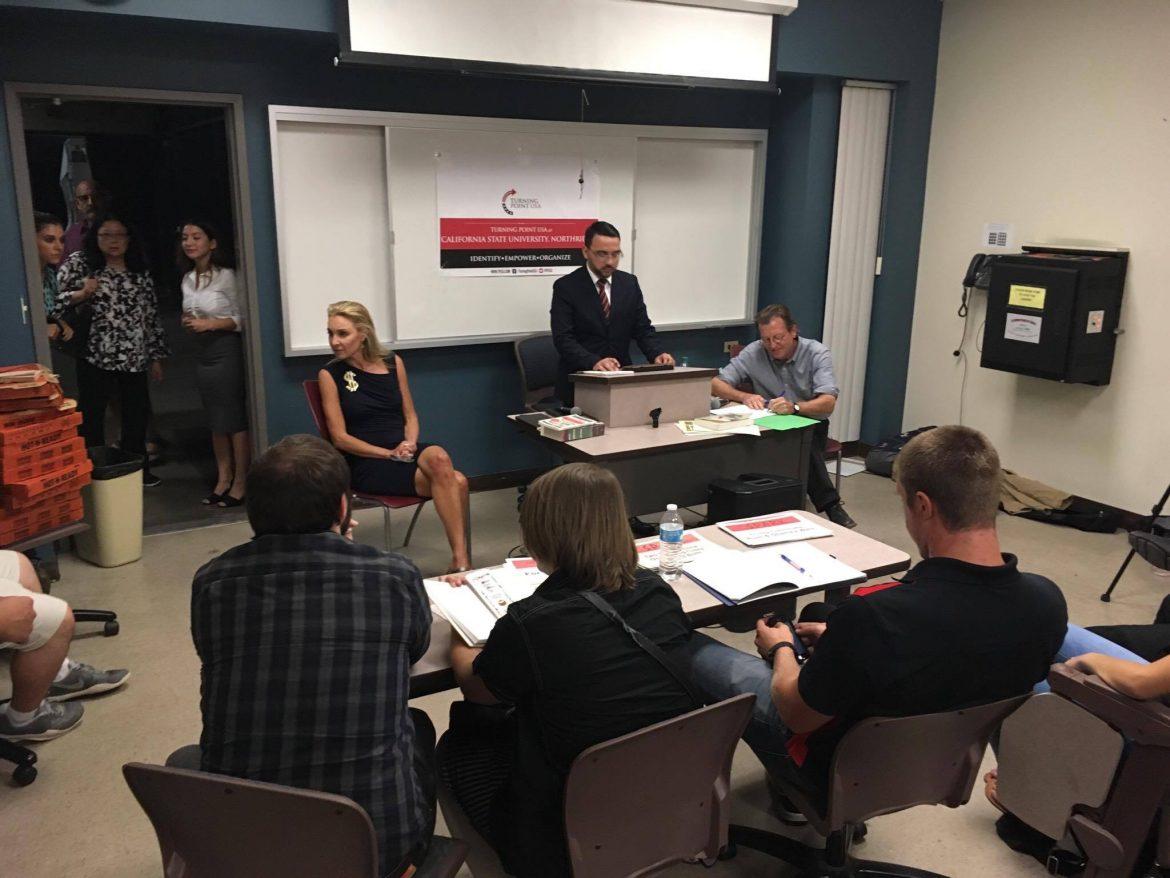
In true college fashion, free pizza was served and many that attended conversed with each other in anticipation of the debate. It was right-wing mentality against left-wing mentality. Then, as the debaters entered everyone found a seat and the debate began with opening remarks.
Grossman began by telling her beginnings in the world of politics as a speechwriter for President George H. W. Bush. After, Grossman described the difficulty of finding a job in a difficult economy along with being laid off and ultimately finding the Atlas Society.
Dr. Powelson opened very uniquely, beginning with the experience of being laid off due to the financial crisis in 2008, describing the cruelty of a capitalistic society and the changes that were enacted in the 1917 Russian revolution. This would be the last time that either side would let the other speak.
Immediately, Grossman responded to the claims that Dr. Powelson made such as, the working-class taking control from the Tsars, the legalization of homosexuality and the ending of Jewish persecution by stating that if the conditions were so good in a communist government then why did so many like Ayn Rand, who lost her father in one of the many Soviet gulags, flee.
Dr. Powelson responded by saying, “People with money have always hated communism and Rand was from a wealthy family.”
This caused tensions to rise as Grossman began to respond however, the moderator stepped in. After, tensions would only escalate.
The debate was only able to cover three main topics: taxes, healthcare and whether their party had the ability to present a platform for millennials. In each of these topics the respective debater took up their time and would talk over their opponent while they spoke.
However, a majority of the time was spent arguing and not debating. Each debater had moments of weakness in their arguments.
Grossman stated, “absolutely better option than starving to death,” when Dr. Powelson asked her about the workers in third-world countries making only cents a day.
“Just like a slave owner,” responded Dr. Powleson, “I am doing the slave a favor.”
These quips would continue throughout. While speaking of taxes, Dr. Powelson stated that the early communist government in Russia had no income.
“That’s because they had no income to tax,” responded Grossman.
Eventually, the debate managed to arrive at the Q&A portion and the first question provided the issue most students in the audience had with communism.
One student interacted with Dr. Powelson that lead to tensions rising further, as the student asked if Dr. Powelson had lived in a communist government because the student was from Vietnam and had lived there for 19 years.
Dr. Powelson quickly responded by stating that there were no real communist governments, defined by the working-class controlling the government. This sparked an argument between Dr. Powelson and the student over the definition of communism.
Near the end of the Q&A, one student asked the two debaters which would help him the most, capitalism or communism. Neither one could answer as they both argued over which system is better, the student never really receiving an answer, only talking points.
This debate, however, did show something: that political polarization has now become a major issue in the United States.
According to the Pew Research Center, those that express consistently conservative or consistently liberal have increased from 10 percent to 21 percent since 1994, meaning that there are less Americans who are moderate, causing political polarization.
The debate was similar to modern American politics with one person to the left and one person to the right. On taxation, the person to the left stated that it was time for the one percent to be taxed and the right stated that tax cuts, incentives and a flat-tax rate would stimulate the economy.
On healthcare, the left-wing stated it was time the United States join many major countries with government provided healthcare and the right-wing stated that a free-market healthcare system should be the answer.
Just like modern American politics, nothing was solved and no new ideas for how to fix things were found; just more of the same ideology and arguments.
